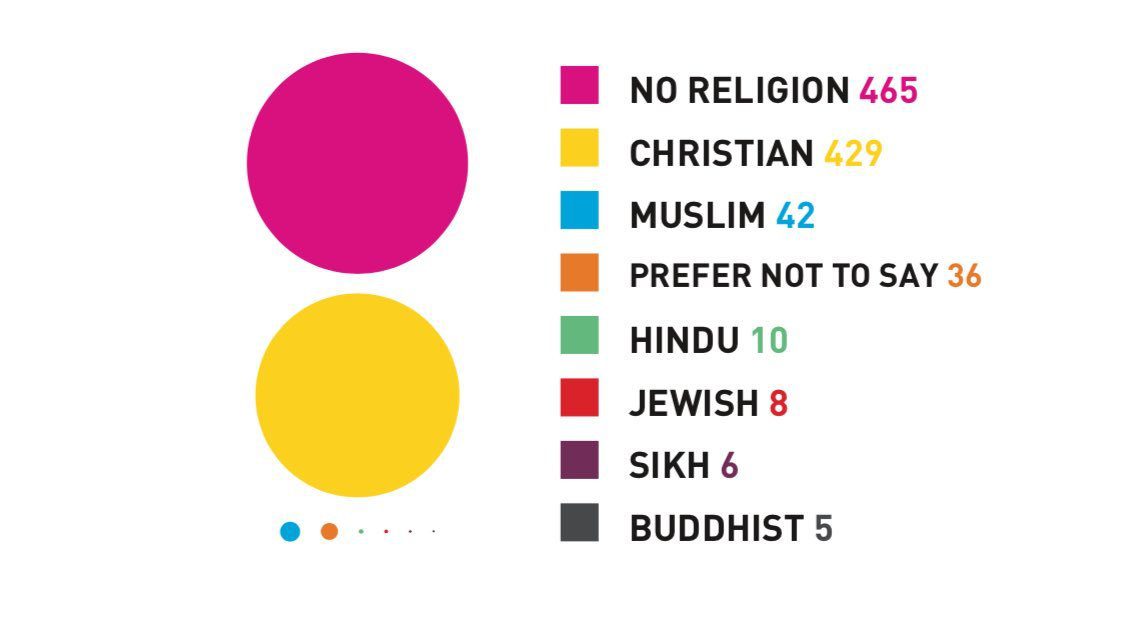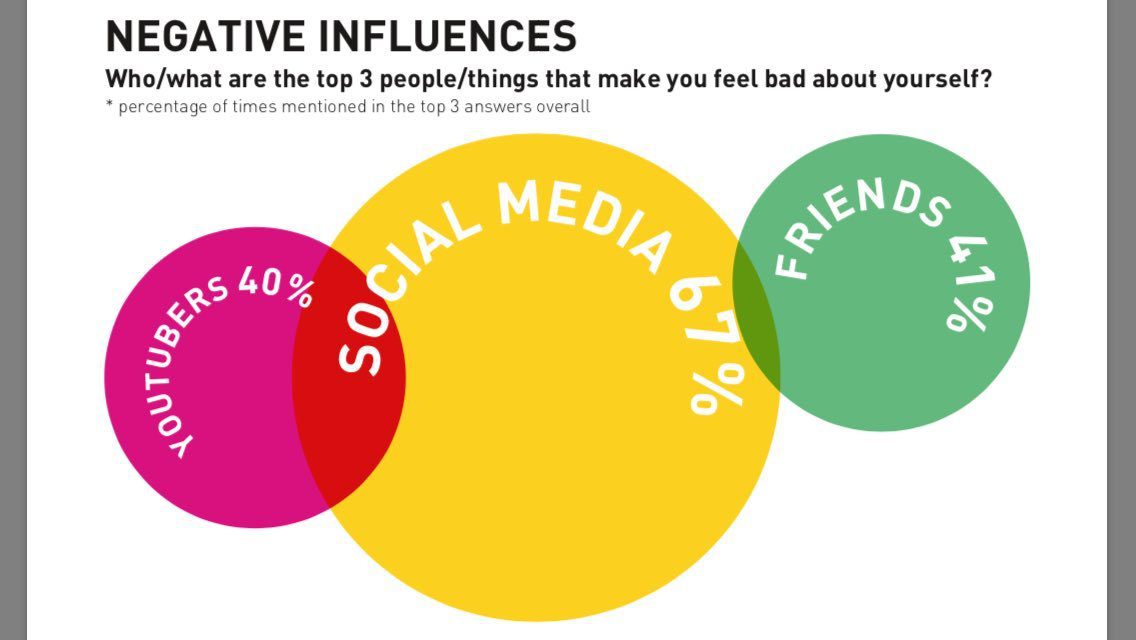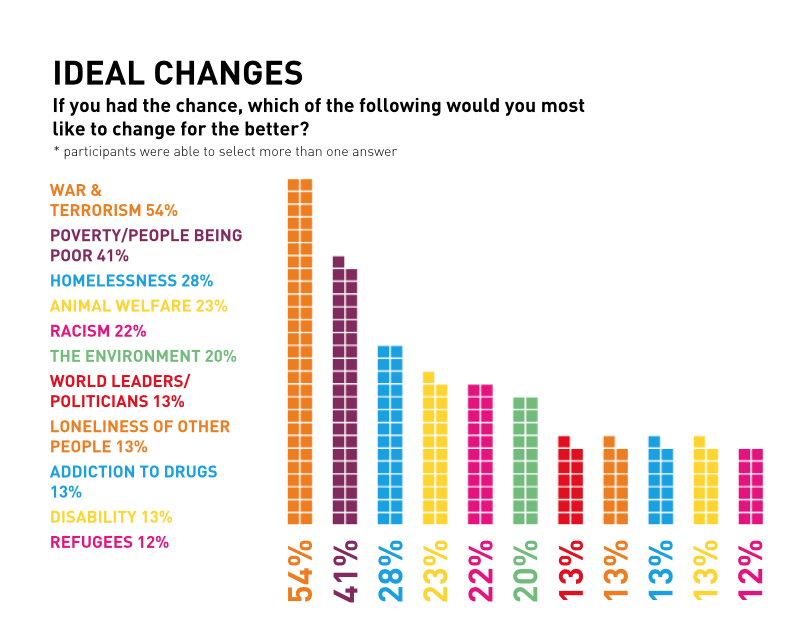Phoebe Hill explores and reacts to the findings of new research by Youth for Christ on the faith of Generation Z.
Our little research ears prick up at the sound of any new statistics being released. So we were delighted to receive the latest report from leading youth ministry organisation YFC, which is jam-packed full of them! The finished report is available to download for free – have a read for yourself here.
The research covers a wide range of topics relating to young people, including culture, influences, priorities, religion and faith. Here are my highlights, the statistics that surprised or challenged me, and what I think they might mean for young people and how we work with them.
1. Religion vs belief
The survey was completed by a representative sample of 1001 young people from across the country. Here was the religious make-up of the sample:
Later on in the survey, the young people were asked: “Which of the following, if any, do you believe in?” (They were able to select both a and b)
a) Believe in a God (32%)
b) Believe in ghosts and spirits (22%)
c) Don’t believe in either (47%)
It is interesting to me that approximately 50% of the young people were religious, and yet only 32% of them ‘believe in a God’. This could suggest two things. Perhaps it identifies some ‘nominal’ members of religious faith among the young people sampled, or in other words young people who associate with the religion of their family / the country, but haven’t necessarily ‘chosen’ the faith for themselves or decided whether or not they believe. The other potential interpretation of these two statistics is that ‘religion’ and ‘belief’ are in some senses seen as two separate realities or identities by young people in this generation. This would correlate with some qualitative research we have been working on (which will be released soon!), which suggests that young people can believe and not be religious, and be religious and not believe. In some senses religion is seen as a cultural identity that does not necessarily entail belief in God (even if the religion they are part of espouses belief in a God). Where nominalism suggests distant and loose identity, with Christian or no religion being a ‘default’ position, the disconnect between religion and belief may suggest a different engagement entirely with the meaning of religion, and the meaning of belief for young people.
2. Belief and prayer
The theme of belief continues with a follow-up question asking those who believed in God whether or not they pray. (I would have loved this question to be asked of the whole sample - it would have been interesting to know whether or not non-religious young people prayed just as much as those listed below! We are analysing some research which suggests this may be the case.) Here were the responses:
a) Yes (41%)
b) No (53%)
c) Prefer not to say (6%)
As the YFC team allude, this suggests a lack of ‘personal connection’ (see page 37 of the report) with the God that they ‘believe’ in. This raises interesting questions for me around the nature of belief. What do we mean when we say that we believe in something? If young people ‘believe’ in a God who is out there somewhere but not knowable / relevant / interested in us, then what do they mean by belief? There are also questions here around what kind of God is available to us, which resonates with the ‘Moralistic Therapeutic Deism’ found by American researchers of youth and religion [1, 2] and Collins-Mayo et. al in the UK [3]. Moralistic Therapeutic Deism is the label coined by Smith et. al for the beliefs held by America’s religious youth, where God is seen as a deistic being who we turn to only in times of need, and who is there to make us happy. I think there are further questions to be asked here about what we mean by belief (and what young people mean by belief) which could be a fruitful area for ongoing research.
3. Faith and religious influences
Young people were asked what they felt influenced them most in the area of faith and religion. Here were their answers:
a) Family 73%
b) Teachers 36%
c) Friends 36%
d) TV & the media 23%
e) The news 21%
f) Videos online 11%
g) Celebrities 9%
h) Youth workers 9%
The role of family in faith formation is well-documented by religious researchers, social scientists and psychologists (see Passing on Faith [4] for a comprehensive summary from the religious side). There are also interesting studies around the ‘immanent frame’ young people operate their faith in [5] and the ‘secular social trinity’ [6] of family, friends and self as the key influencers for religion and no religion. The above results seem to suggest that it is those who have entered into young people’s ‘immanent frame’ (or what Savage et. al call the ‘midi’ narrative) - family, teachers, friends – those who have talked to (or not talked to) them about faith or religion around the dinner table, in RE classes or on the playground, who are the key influencers. It’s perhaps unsurprising therefore that only 9% list a youth worker as a key influence. There are not enough youth workers across the country, sadly, to enter into every young person’s ‘immanent frame’. Perhaps this is not our job. Or perhaps we should rally for more youth workers! However, we would do well to focus some of our energies as a community around how else we can reach those who may never meet a youth worker, but who live in families, who have friendship groups, and who spend a vast proportion of their teenage lives at school.
4. Love/hate relationship with the digital realm
In the survey young people were asked about the activities they enjoy doing in their spare time. Here were their responses:
Later on in the report, they were asked which people or things made them feel bad about themselves. The top three responses are listed on the right. It’s perhaps unsurprising that YouTube and social media both feature on the activities and hobbies young people enjoy most, while also featuring on the highest ‘negative influences’ in their lives. I was surprised however to see how much higher YouTube engagement was among these young people than social media, and also it’s place as a negative influence.
We are keen to research young people’s YouTube engagement further, and are also planning to host a young YouTubers course for Christian young people at Youthscape. If you are – or know – a young person who might be interested, email youtube@youthscape.co.uk
5. Changing the world
The young people were asked: “If you had the chance, which of the following would you most like to change for the better?” Here were their responses:
I was fascinated to see that refugees featured last on this list. I wonder how different the ordering of this list would have been if the survey was carried out a year ago. It’s worrying how quickly the refugee issue has been relegated to the bottom of the pile, despite its direct relationship to war and terrorism (which is right at the top), now that the news hounds have moved on and the refugee crisis is no longer front page news. Taking a cynical view, and relating back to the earlier discussion around ‘immanent frame’, it’s more plausible that war and terrorism will affect young people in the UK than the refugee crisis, and they therefore (perhaps naturally) feel more of an inclination to prevent it.
This is a challenge for us too. How do we remain compassionate about important issues while others move on to the next thing? How do we engage young people with issues beyond those that directly affect them?
As with any piece of research, there are questions left unanswered. The report covers a very broad range of topics which means, inevitably, there is a limit to the depth of insight we can glean from the data. Saying this, there are some really interesting glimpses in the report. It would now be interesting to see further research into the key areas identified here.
We are grateful to the team at YFC for this research, and we would encourage you to continue the conversation around what they have found.
1. Dean KC. Almost Christian : What the faith of our teenagers is telling the American church. New York: Oxford University Press; 2010.
2. Smith C, Denton ML. Soul searching : the religious and spiritual lives of American teenagers. Oxford: Oxford University Press; 2005.
3. Collins-Mayo S. The faith of generation Y. London: Church House Publishing; 2010. xii, 153 p. p.
4. Mark O. Passing on Faith, http://www.theosthinktank.co.u... on faith combined (1).pdf. 2016.
5. Savage SB, Mayo B, Collins-Mayo S, Cray G. Making sense of Generation Y : the world view of 15- to 25-year-olds. London: Church House; 2006.
6. Day A. Believing in belonging: An ethnography of young people's constructions of belief. Culture and Religion. 2009;10(3):263-78.






